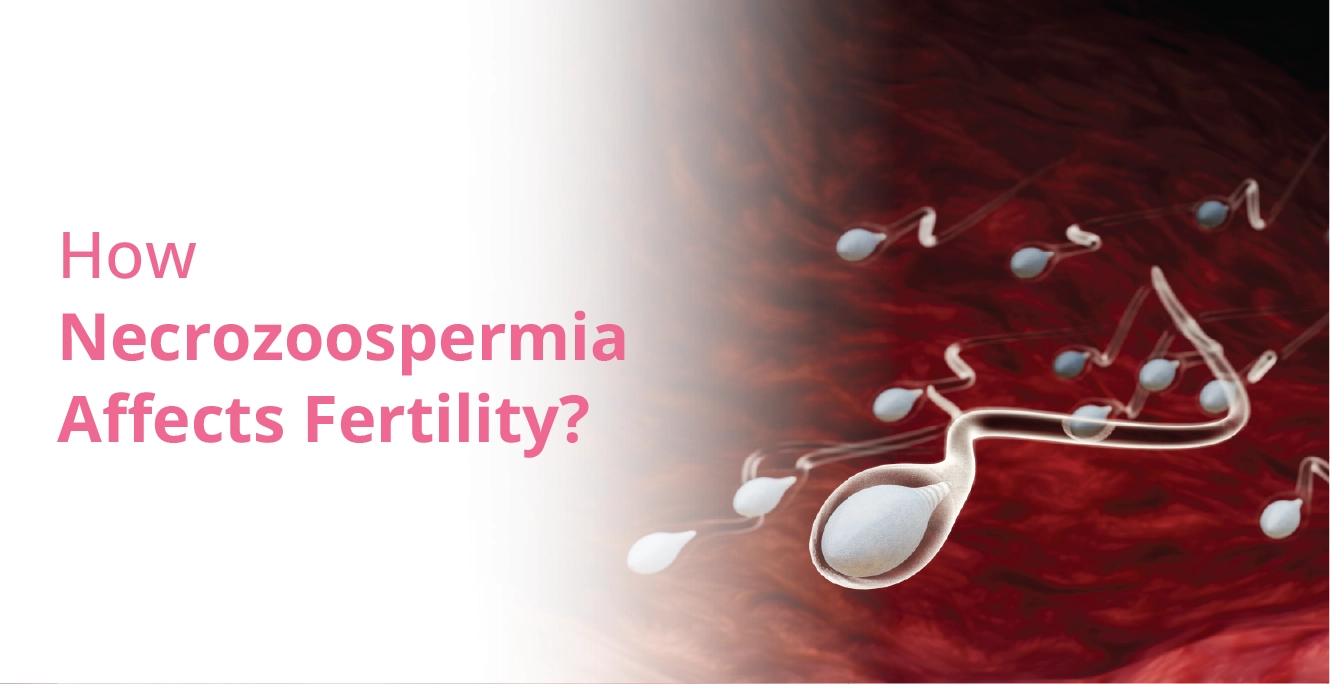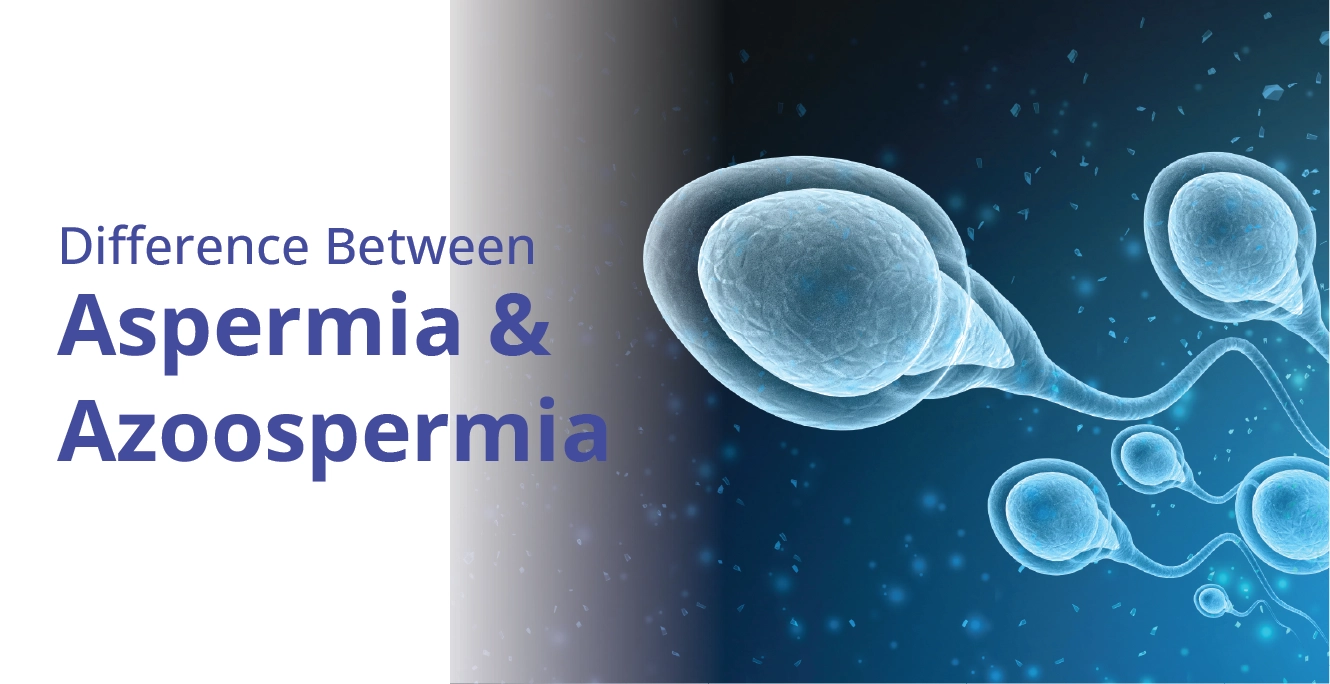
Male & Female Infertility: Diagnosis and Treatment Guide

Table of Contents
Starting the journey towards parenthood can be one of life’s most exciting milestones. Yet, for some couples, this step can pose numerous challenges due to infertility issues. Infertility is not a topic frequently discussed openly in many societies, and it often carries with it a sense of stigma and misunderstanding. Did you know that according to the World Health Organisation (WHO), approximately 17.5% of the adult population worldwide have trouble conceiving, with India ranking at the top among countries with high infertility rates?
When we talk about infertility, it’s important to remember that this is a challenge faced by both men and women alike; it’s not exclusive to either gender. That’s why our chain of clinics offers a balanced approach to male and female infertility treatments. We understand the emotional strain that accompanies these challenges, and we’re here to provide you with insightful information from eminent healthcare professionals in the field.
This blog post serves as a comprehensive guide to understanding the diagnosis and treatment options available for both male and female infertility. By shedding light on this often misunderstood topic, we aim to empower you with knowledge, alleviate any fears or misconceptions you may have and ultimately guide you in making informed decisions about your fertility treatment journey.
Diagnosing Male Infertility
Male infertility refers to a condition where a man has difficulties in starting a pregnancy with his female partner due to issues related to his reproductive system. It is often diagnosed through a series of tests that are designed to identify the root cause of conception difficulties. These include:
-
Initial Evaluation: This usually involves a complete medical history, physical examination, and routine hormone tests conducted by a primary care physician or urologist.
-
Semen Analysis: A critical diagnostic tool for male infertility, semen analysis examines the volume, count, motility, and morphology of sperm present in a semen sample.
-
Additional Tests: Depending on initial results, further tests such as seminal fructose test, post-ejaculate urinalysis, semen leukocyte analysis, sperm morphology tests, anti-sperm antibodies test, ultrasound, testicular biopsy, vasography, and genetic testing may also be ordered.
|
Myth vs Fact: Myth: Male infertility is always due to low sperm count. Fact: While low sperm count (oligospermia) can be a factor in male infertility, it is not the sole cause. Male infertility can result from various factors, including sperm quality, motility issues, hormonal imbalances, genetic factors, structural abnormalities in the reproductive organs, or underlying medical conditions. Therefore, a comprehensive evaluation is necessary to identify the specific cause of male infertility and determine the most appropriate treatment approach. |
Treating Male Infertility
Treatment options for male infertility vary based on the identified causes and range from surgical interventions to medication and lifestyle changes.
Surgery
Surgeries such as varicocele repair or vas deferens obstruction correction can help improve male fertility.
Medication
Hormone imbalances and erectile dysfunction affecting fertility can be treated with certain medications. For example, gonadotrophin injections can trigger testosterone production and sperm generation.
Assisted Reproductive Technologies (ART)
ART techniques like In vitro fertilisation (IVF) or intracytoplasmic sperm injection (ICSI) may be recommended when other treatments prove ineffective.
Lifestyle Changes
Maintaining a healthy weight, avoiding exposure to harmful substances, reducing alcohol consumption, quitting smoking and wearing loose-fitting underwear can all positively affect male fertility.
Diagnosing Female Infertility
Female infertility refers to the condition where a person with a uterus is unable to get pregnant despite having regular, unprotected sex for 12 months or more. Diagnosis of female infertility typically involves procedures such as:
-
Medical History and Physical Exam: These provide valuable insights into potential factors contributing to infertility.
-
Ovulation Testing: At-home ovulation prediction kits or blood tests can detect ovulation and assess hormone levels.
-
Hysterosalpingography: This X-ray procedure checks for issues within the uterus and evaluates whether fluid passes out of the uterus and fallopian tubes.
-
Ovarian Reserve Testing: This test assesses the quality and quantity of eggs available for ovulation, especially in women over 35.
-
Additional Hormone Testing: Various hormones which control reproduction are checked, including ovulatory hormones, thyroid hormones, and pituitary hormones.
-
Imaging Tests: Pelvic ultrasounds look for uterine or fallopian tube issues, while sonohysterograms or hysteroscopies provide a detailed view of the uterus.
-
Additional Tests: In some cases, laparoscopy may be performed to identify conditions like endometriosis, scarring, blockages, or irregularities in the reproductive organs
|
Tip: If you have been diagnosed with infertility, consider seeking emotional support and joining a support group. Dealing with infertility can be emotionally challenging, and connecting with others who are going through similar experiences can provide valuable support, understanding and encouragement. Sharing your journey with others who understand can help alleviate feelings of isolation and give a sense of community during this difficult time. Additionally, professional counselling or therapy can offer strategies for coping with stress, anxiety and grief related to infertility, helping you navigate this journey with resilience and strength. Remember, you are not alone in your pregnancy journey, and there are resources available to support you every step of the way. |
Treating Female Infertility
Depending on the root cause, female infertility can be treated with medication, surgery or assisted conception techniques.
Medication Treatments:
Drugs such as Clomiphene, Letrozole, Gonadotropins, and Human Chorionic Gonadotropin (hCG) can aid with ovulation issues.
Surgery
Surgical treatments can address abnormalities in the reproductive system, such as endometriosis or tubal blockages.
Assisted Conception:
Techniques like intrauterine insemination (IUI) and IVF can assist in conception. Donor sperm or eggs might also be considered if necessary.
Lifestyle Changes:
Maintaining a healthy weight, reducing caffeine and alcohol intake, quitting smoking, and avoiding recreational drugs can enhance fertility outcomes
Understanding the journey through infertility diagnosis and treatment options can seem overwhelming. But remember that knowledge is power, and having a comprehensive understanding of your situation will help you make informed decisions about your fertility journey. The choice of treatment depends on the individual’s diagnosis, age, medical history, and preferences. It is essential to have open conversations with your doctor about your concerns and treatment options. The goal of all these treatments is to improve the chances of successful conception.
If you’re considering seeking professional help for your infertility issues, then don’t hesitate to schedule a consultation at Birla Fertility. Our dedicated team of experts is committed to guiding and supporting you every step of the way in your fertility journey.
FAQs
1. Are there alternative therapies or holistic approaches for female infertility treatment?
Yes, some women may explore alternative therapies or holistic approaches such as acupuncture, yoga, or herbal supplements to support fertility treatment. While these approaches may not replace conventional medical interventions, they can complement treatment and promote overall well-being.
2. How does age affect female fertility treatment options?
Age plays a significant role in female fertility, with fertility declining gradually after the age of 35 and more rapidly after 40. Advanced maternal age may affect the success rates of fertility treatments such as IVF, highlighting the importance of timely fertility evaluation and treatment.
3. Is there a link between male infertility and overall health?
Yes, male infertility may be associated with underlying health conditions such as diabetes, obesity, or hormonal imbalances. Addressing these health issues through lifestyle changes or medical interventions can positively impact fertility and treatment outcomes.
4. Can male infertility be hereditary?
Yes, certain genetic conditions or mutations can contribute to male infertility. Conditions like Klinefelter syndrome, Y chromosome deletions, or mutations in genes involved in sperm production can be inherited and affect fertility.
5. What does the initial evaluation of male infertility involve?
The initial evaluation for male infertility generally involves a complete medical history, physical examination, and general hormone tests conducted by either a primary care physician or a specialist, such as a urologist. Questions about sexual habits and health history are also asked to gather relevant information
6. Are there fertility treatment options specifically for women with polycystic ovary syndrome (PCOS)?
Yes, women with PCOS may benefit from fertility treatments tailored to address ovulatory dysfunction, such as ovulation induction with medications like clomiphene or letrozole. IVF may also be recommended for women with PCOS who do not respond to other treatments.
Our Fertility Specialists
Related Blogs
To know more
Birla Fertility & IVF aims at transforming the future of fertility globally, through outstanding clinical outcomes, research, innovation and compassionate care.
Had an IVF Failure?
Talk to our fertility experts

 Our Centers
Our Centers

















